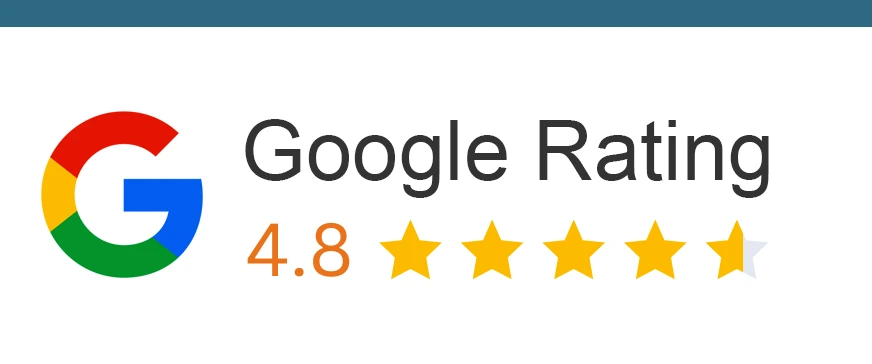The Bank of England has slashed the base rate to a record level low of 0.1%. How will you keep up with the reduced rate of interest and how can you protect your money? Is it going to impact your savings?⭐Interest Rates ⭐Personal Savings
Maximise your options: Compare and apply for loans below with LoanTube
Apply Filters
Introduction
Ever since the Covid-19 outbreak, the economy hasn’t been the same. Governments across the globe are revamping their financial system to maximize efficient use of the stimulus. While the UK government is actively taking all options to minimize losses, into consideration, there are rather large roadblocks in their way. As difficult as these times are, more and more bad news is finding its way to our doorsteps. The Bank of England announced the first rate cut in the post-coronavirus UK, by 50 basis points to 0.25%. This was followed by a second decrement in the rate, to 0.1%, shortly after. 01% has so far been the lowest interest rate on record for the UK. But what does this decline in interest rates mean for you?
To help you gain a better insight into this, we’ve broken down the whole concept of interest rates and how this decline will affect your finances.
What is Interest Rate?
By definition, interest rate refers to the additional cost levied on the principal amount that you borrow. So you will eventually owe your lender the principal (loaned amount) plus the interest levied on the same.
In case of a savings account, however, Interest rate refers to the rate that your bank or building society pays you for borrowing money. The money earned on savings is called interest.
Interest of Loans vs Interest on Savings
When you take a loan, you repay the capital (original loan amount) plus the interest levied on that loan to your lender. For instance, let’s consider a loan of £1000, borrowed at an interest rate of 10%, per annum. Once the loan term ends, you will ultimately repay £1100, constituting of the principal (£1000) and the 10% annual interest (£100) that was agreed upon.
On the other hand, let’s say you have put £1000 in a savings bank account, offering an interest rate of 2% per annum. In this case, you are earning an interest of 2% per year, that is, £20, on your savings. So after a year, you will have £1020 in the same savings account.
How will the Reduced Rates Impact you?
Ever since the rate cut from 0.75% to 0.1%, which is the lowest in Bank of England’s 326-year-old history, banks took their shot at slashing rates to as low as 0.01%. It is anticipated that this base rate of 0.1% is here to stay for at least a year. However, it is expected barely expected to rise, in the next three years, as analysts forecast a minor increment to 0.2% for FY 2022.
So what does this rate cut mean for you?
1. Impact on Mortgage
If you have a fixed-rate mortgage, there will be no impact on your deal. For people with a variable rate mortgage, the rate could fall a little in case of lenders who follow trackers. Trackers refer to a plan wherein lenders charge an interest rate, additional to the base rate set by Bank of England. So, the fall in this base rate would mean that the interest rate as a whole, may actually decrease. These changes in interest rate, however, are bound by terms and conditions, so they may vary from lender to lender. In the case of older mortgages, minimum rates can sometimes be overlooked as they are in small print. So we recommend that you keep all the paperwork handy to check your mortgage plan and prepare accordingly.
2. Impact on Savings
After savings took the blow after two consecutive rate cuts, even easy-access high street banks are paying just 0.1% in interest. Now in the unlikely event of the base rate going negative, banks will start charging money from savings providers, for their everyday savings. In such a case, people might just withdraw the money and keep the cash at home, which comes with its own set of risks of burglary and break-ins.
However, to alleviate the situation post the rate cut, Bank of England offered a new fund for banks to lend, at 0.1% base rate. £8.2 Bn of this fund was injected into the economy these banks within the first two weeks. Now that a number of banks would be inclined towards cashing in on this fund, their dependence on savings providers will decrease. This translates into the fact that there is no incentive for them to raise the savings rate in a competitive market. Hence, we can conclude that better savings rates are not underway, anytime soon.
3. Impact on Loans and Credit Cards
Personal loan rates are more often than not, set on predefined terms, so they’re fixed. As for credit cards rates, they tend to be lower for new consumers but eventually increase their rates. As of now, there are no reports that suggest substantial changes in credit cards as well as loans, as an impact of the rate cut.
What to do with my Savings?
While the current base rate 0.1%, there are speculations that a negative figure base rate might be on its way. In such a crisis, where should you put your savings?
1. Children’s Savings Account
If you have children or happen to fall in the category yourself, consider a children’s savings account. These accounts offer better savings rates as opposed to the other ones. For instance, the rate offered by HSBC and Santander for a children’s savings account is 3%. HSBC’s MySavings is for children between the age bracket of 7 and 17, with a rate of 3% on balances up to £3000. ‘Future saver’ scheme at Nationwide, for parents seeking an ideas account to save for their child, up to 15 years of age, can deposit £5000 a year. Coventry Building Society offers 3.6%, followed by TSB, Santander and NS&I offering an interest of 3.25%.
2. Consider a Fixed Rate Account
A fixed-rate account will offer a fixed amount of interest per year. Now, a fixed rate account may not reap benefits from rising interest rates, but it is ideal for situations like these. When the rate goes low (or negative), your fixed-rate account is immune to any changes or rate cuts. However, since these accounts are tenure-based, there is some flexibility in choosing the duration.
3. Save on a Monthly Basis
Even with the rate cut, there are some banks that are offering a decent deal on savings accounts. Kent Reliance offers a rate of 3% (for one year). It also allows you to deposit a sum of £500 every month. The only downside to this offer is that it has to be opened and operated in-branch. HSBC’s fixed 12-month savings account plan offers a rate of 2.75% for £3000 per year.
Even for easy access accounts, there was a substantial fall in the usual interest rate ever since the rate cut was implemented. Approximately 40 million people in the UK have easy access accounts. Of which only 10% move their money around, to maximize benefits from the best interest rate offers. With Bank of England administering more funds to mitigate the economic pressure, banks may not compete for savers. However, as banks attempt to strengthen the economy by boosting lending, they will also need to perform stricter credit checks to prevent defaults in repayment. If savers withdraw deposits, banks will most likely run low on liquid cash to lend. This way the economy may get trapped in a vicious cycle.


